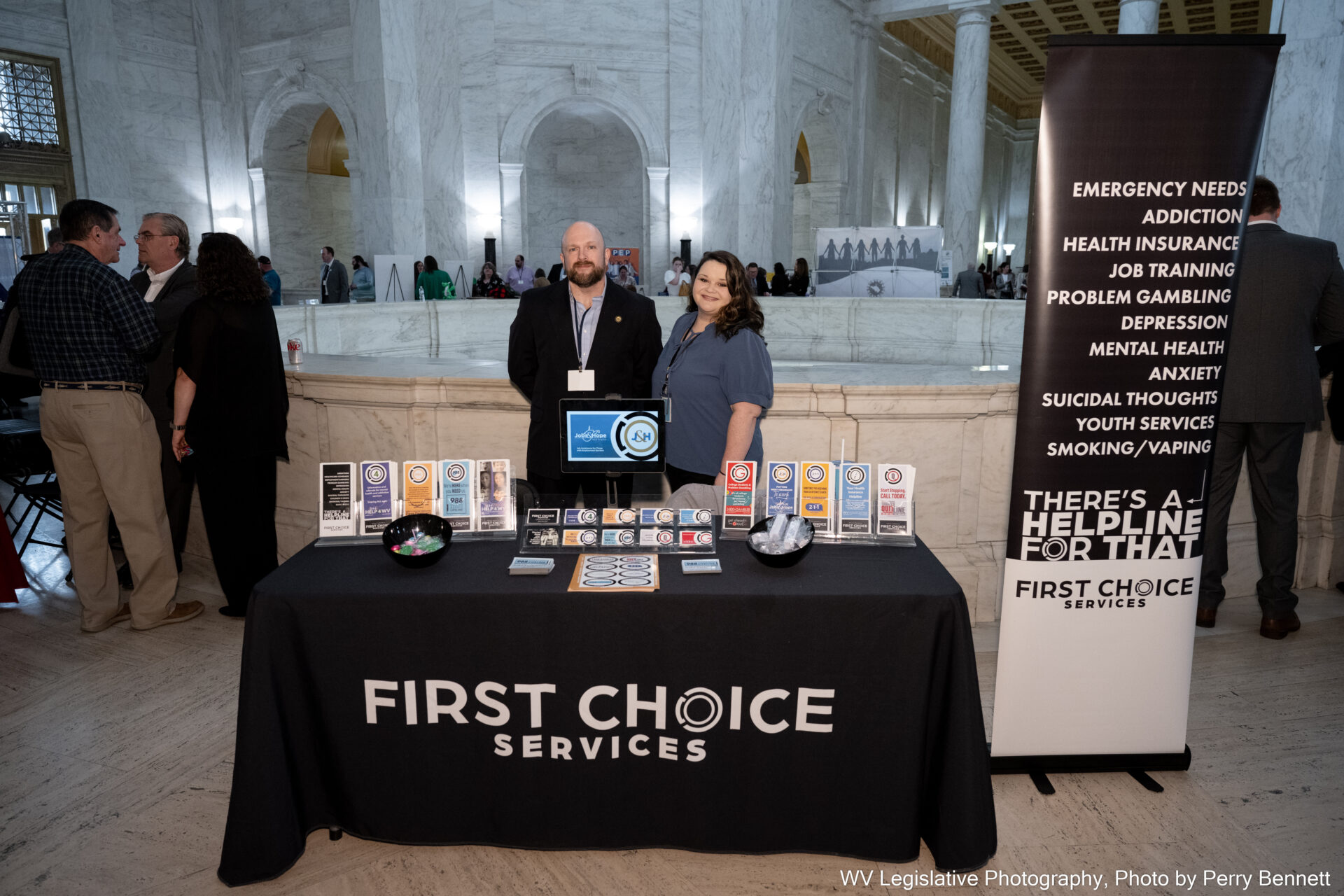Organizations from across the state spent Monday morning manning tables throughout the rotunda, educating the public and lawmakers about their prevention efforts against many issues, from gambling to tobacco use.
Sheila Moran is director of marketing and communications for First Choice Services which operates several programs and helplines to provide access to behavioral health and social services.
Moran said while emergency services are vital, she wishes people would reach out before a crisis so First Choice Services can offer them prevention tools.
“There is a strong prevention component, Moran said. “We really wish people would call us sometimes before things get to a crisis, maybe a family member who’s concerned about someone in their life who may be suicidal, they can call our 988 line and they can get a heads up, they can get some advice, some guidance to provide their loved one.”
Moran said she was encouraged by the show of participation and support from youth attending the event.
“I’ve been heartened to see how many of the young people have come up to our table,” she said. “So I think it’s a really different environment than it was many years ago. You know, so many of these kids are involved in clubs and organizations that are talking about some of the dangers.”
One of those student participants was Colt Castle, a seventh grader from Washington Middle School who attended the event as part of the Pocahontas Youth Coalition.
“We will throw parties every month, to give people a sense of community to come to, instead of going out committing crimes and doing drugs,” Castle said.
Castle said his involvement in the group came from a deep sense of community.
“I wanted to help create a better sense of community, so that people wouldn’t go to jail for it, and wouldn’t die because of it,” Castle said.
Debbie Goff with Putnam Students Against Destructive Decisions (SADD) said her student-led organization chooses which issues to address in their community.
“We come into the community, we do a lot of educating students, it’s student-led, so that students actually decide what issues they want to tackle the most,” Goff said. “Right now, it’s mental health and vaping.”
Goff said she hopes the education SADD provides its participants with will arm them in making decisions in the future.
“I’m not naive enough to think I’m gonna stop every kid from trying something,” Goff said. “But what do they do? What, how do they know? Give them the education and make that choice.”
